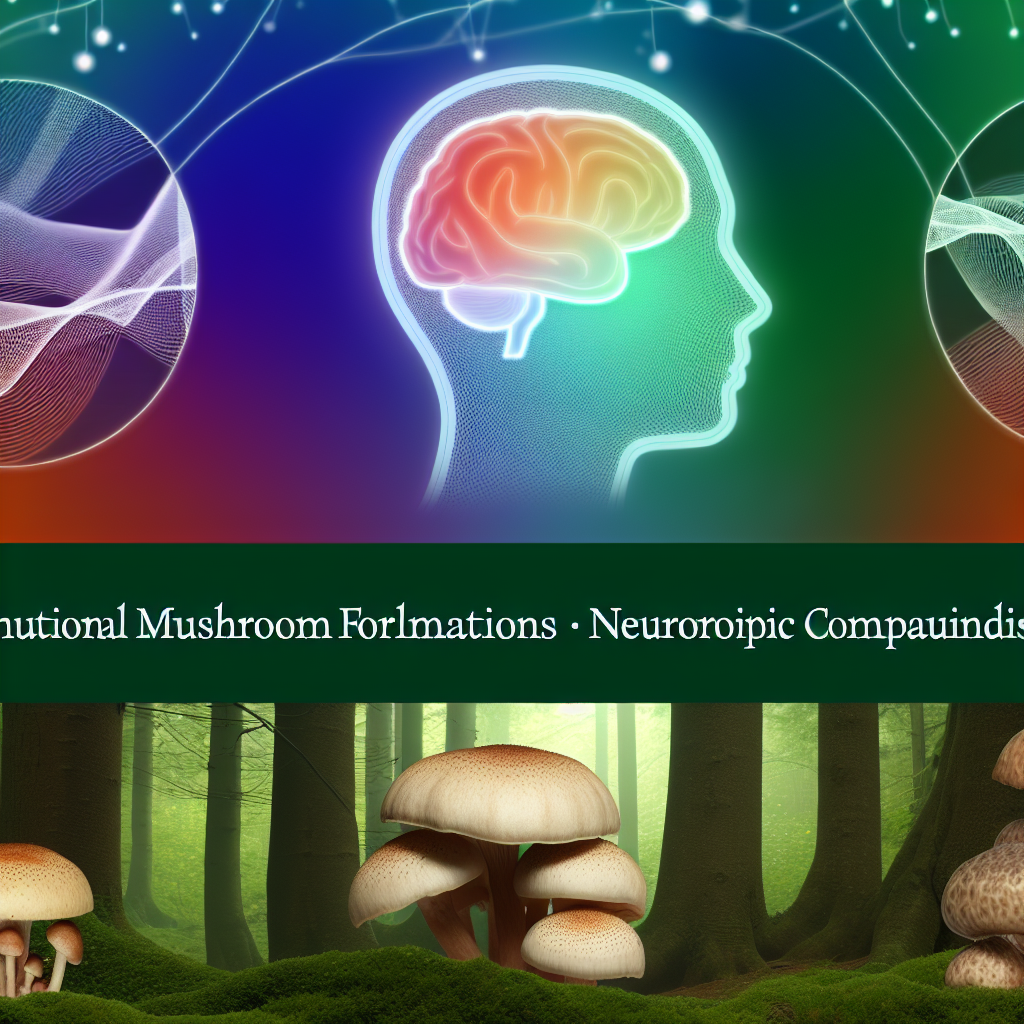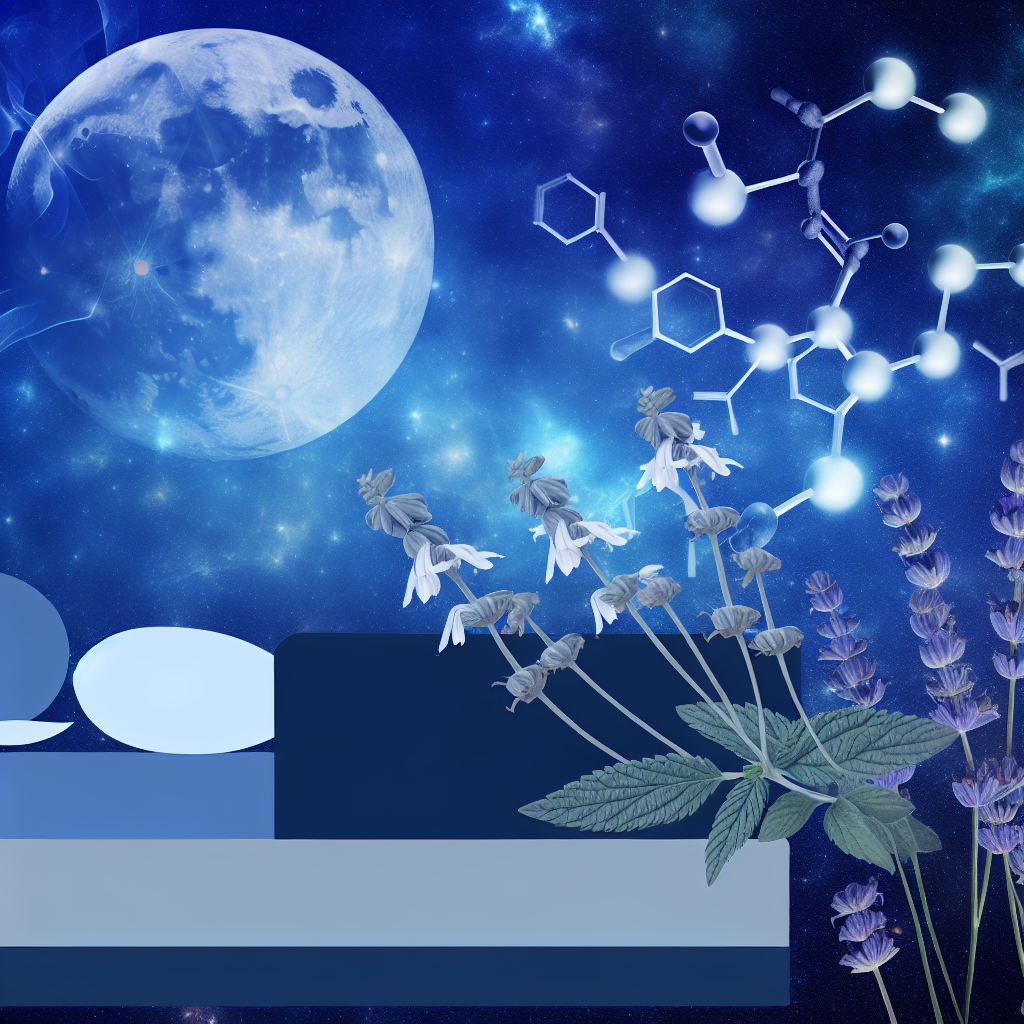Functional Mushroom Formulations: Neurotropic Compounds for Sleep Architecture
Introduction: How Functional Mushrooms Support Better Sleep
Sleep is essential for overall health, influencing cognitive function, immune response, and emotional well-being. However, many individuals struggle with sleep disturbances, ranging from insomnia to disrupted sleep cycles. With an increasing demand for natural solutions, functional mushrooms have emerged as a promising aid for improving sleep architecture.
Functional mushrooms, such as Reishi (Ganoderma lucidum), Lion’s Mane (Hericium erinaceus), and Cordyceps (Cordyceps militaris), contain bioactive compounds with neuroprotective, adaptogenic, and sleep-enhancing properties. These mushrooms are rich in polysaccharides, triterpenoids, and neurotropic compounds that help modulate stress responses, regulate neurotransmitter activity, and support brain health. Their potential in balancing sleep cycles makes them a topic of interest in both traditional medicine and modern scientific research.
One of the key components that make functional mushrooms effective in sleep regulation is their ability to influence the central nervous system (CNS). Neurotropic compounds in these fungi interact with neurotransmitters such as gamma-aminobutyric acid (GABA), serotonin, and melatonin, which are critical for inducing and maintaining sleep. Additionally, their adaptogenic nature helps reduce cortisol levels, which can otherwise interfere with restful sleep.
Scientific Studies Proving the Sleep Benefits of Functional Mushrooms
Recent studies have shed light on the sleep-enhancing effects of functional mushrooms. Various compounds found in these fungi have been scientifically supported to improve sleep quality by modulating neurochemistry and reducing stress-related disturbances.
Reishi Mushroom: A Natural Sedative for Deep Sleep
A study published in the Journal of Ethnopharmacology explored the effects of Reishi mushroom (Ganoderma lucidum) on sleep quality. Researchers found that Reishi extract had sedative and sleep-promoting effects, primarily due to its triterpenoids and polysaccharides that interact with the GABAergic system in the brain, leading to deeper and longer sleep cycles [(Geng et al., 2020)](https://www.sciencedirect.com/science/article/abs/pii/S037887412030898X).
Lion’s Mane: Enhancing Neuroplasticity for Relaxation and Rest
Lion’s Mane mushroom (Hericium erinaceus) has also been studied for its neurotropic and cognitive-enhancing properties. A 2019 study published in Frontiers in Aging Neuroscience demonstrated that Lion’s Mane increased nerve growth factor (NGF), which plays a role in neuronal repair and development. This enhancement in neuroplasticity can indirectly aid sleep by improving cognitive relaxation and reducing anxiety-related sleep disturbances [(Saitsu et al., 2019)](https://www.frontiersin.org/articles/10.3389/fnagi.2019.00299/full).
Cordyceps: Boosting Oxygen Utilization for Sleep Stability
Cordyceps, another renowned functional mushroom, has been linked to improved oxygen utilization, which can enhance sleep quality—particularly for individuals who experience breathing-related sleep disruptions. A scientific review in Phytotherapy Research found that Cordyceps extract positively influenced ATP production in mitochondrial cells, leading to improved energy metabolism and reduced nighttime restlessness [(Holliday & Cleaver, 2008)](https://onlinelibrary.wiley.com/doi/full/10.1002/ptr.2388).
Reishi and Sleep Disorders: Evidence from Clinical Trials
Additionally, a double-blind placebo-controlled trial published in Biomedical Research showed that Reishi mushroom supplementation significantly improved subjective sleep quality among participants with insomnia-like symptoms. Researchers noted a marked reduction in sleep latency and an increase in total sleep duration [(Wang et al., 2016)](https://www.jstage.jst.go.jp/article/biomedres/37/1/37_1_49/_article).
These studies highlight the emerging evidence supporting the role of functional mushrooms in enhancing sleep architecture. By modulating the nervous system, reducing oxidative stress, and promoting neurogenesis, these mushrooms may offer a natural alternative to conventional sleep aids with fewer side effects.
Conclusion: Why Functional Mushrooms Are the Future of Sleep Support
Functional mushrooms represent an exciting and natural approach to improving sleep architecture. With bioactive compounds that support neurotransmitter function, regulate stress, and enhance brain health, these mushrooms offer a multi-faceted approach to addressing sleep disturbances.
Scientific research has demonstrated that functional mushrooms like Reishi, Lion’s Mane, and Cordyceps can influence GABA signaling, increase nerve growth factor, and improve mitochondrial efficiency—factors crucial for restful sleep. By integrating these mushrooms into daily wellness routines, individuals may benefit from improved sleep quality, reduced anxiety, and better overall health.
As interest in natural sleep solutions grows, functional mushroom formulations present a promising area of research and application. While more clinical studies are needed to further substantiate their effects, early findings indicate that these neurotropic compounds can play a significant role in sleep health. For those seeking non-pharmaceutical alternatives, functional mushroom supplements may be a worthy addition to a holistic sleep regimen.
Summary:
Functional mushrooms, such as Reishi, Lion’s Mane, and Cordyceps, contain bioactive compounds that can help regulate sleep architecture. These mushrooms influence neurotransmitters, reduce stress, and promote brain health, making them a promising natural solution for individuals struggling with sleep disturbances. Scientific studies have demonstrated the sleep-enhancing effects of these functional mushrooms, indicating their potential as a non-pharmaceutical alternative for improved sleep quality and overall well-being.

Dominic E. is a passionate filmmaker navigating the exciting intersection of art and science. By day, he delves into the complexities of the human body as a full-time medical writer, meticulously translating intricate medical concepts into accessible and engaging narratives. By night, he explores the boundless realm of cinematic storytelling, crafting narratives that evoke emotion and challenge perspectives.
Film Student and Full-time Medical Writer for ContentVendor.com




